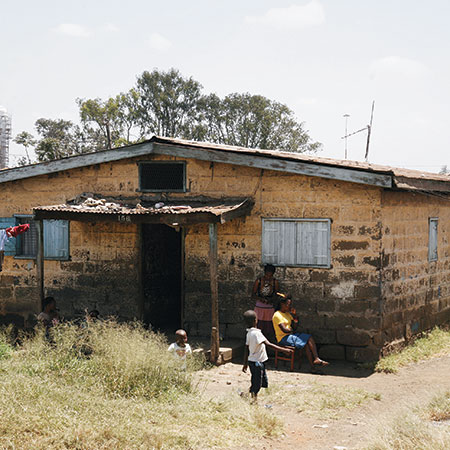
Nairobi residents who live in county government houses will by the end of this month start paying higher rent.
The increase in rent comes after Governor Evans Kidero signed the Nairobi County Finance Act into law to increase revenue of the county government.
‘Kanjo estates’ mostly in Eastlands, usually pay a paltry Sh500 to Sh15,000 in rent.
Nairobi has more than 16,000 council houses.
The least increase in rent will be by Sh300.
The rates of county-owned houses were last adjusted 10 years ago.
Zelphar Owiti, who has been living in Jericho for 12 years, told The Nairobian the increase in rent is not sustainable to most city residents.
“If we had money, we would all be living in Runda. These are government houses, so why should the government want to make profit off its citizens? The rent should stay as it is,” said Owiti, who lives in a two-bedroom house.
She does not know how much the city council charges but the person who sublets the house to her demands Sh12,000 every month.
The last time the county government upgraded, or repaired the houses was 15 years ago. Most council houses have burst sewers, leaking roofs, and deplorable roads.
Most people who were allocated the county government houses have died or retired, and those still alive, have sublet them to new tenants at higher rates.
City Hall levies a monthly rent of Sh10,000 for three-bedroom units, while the same houses are let to secondary tenants at the market rate of Sh30,000 per month.
The same scheme is replicated in Kaloleni, Jericho, and Ziwani, Jerusalem (Salem) Lumumba, Uhuru, and Maringo among other Nairobi City Council estates.
A one-bedroom apartment attracts a monthly rent of Sh4,500 paid to the City Hall, but is let to secondary tenants at Sh15,000.
City Hall owns 16,632 housing units in Nairobi spread across several estates from where it collects a paltry Sh45 million.
In reality, the county government can collect over Sh500 million from the same property.
 The Standard Group Plc is a multi-media organization with investments in media
platforms spanning newspaper print
operations, television, radio broadcasting, digital and online services. The
Standard Group is recognized as a
leading multi-media house in Kenya with a key influence in matters of national and
international interest.
The Standard Group Plc is a multi-media organization with investments in media
platforms spanning newspaper print
operations, television, radio broadcasting, digital and online services. The
Standard Group is recognized as a
leading multi-media house in Kenya with a key influence in matters of national and
international interest.
